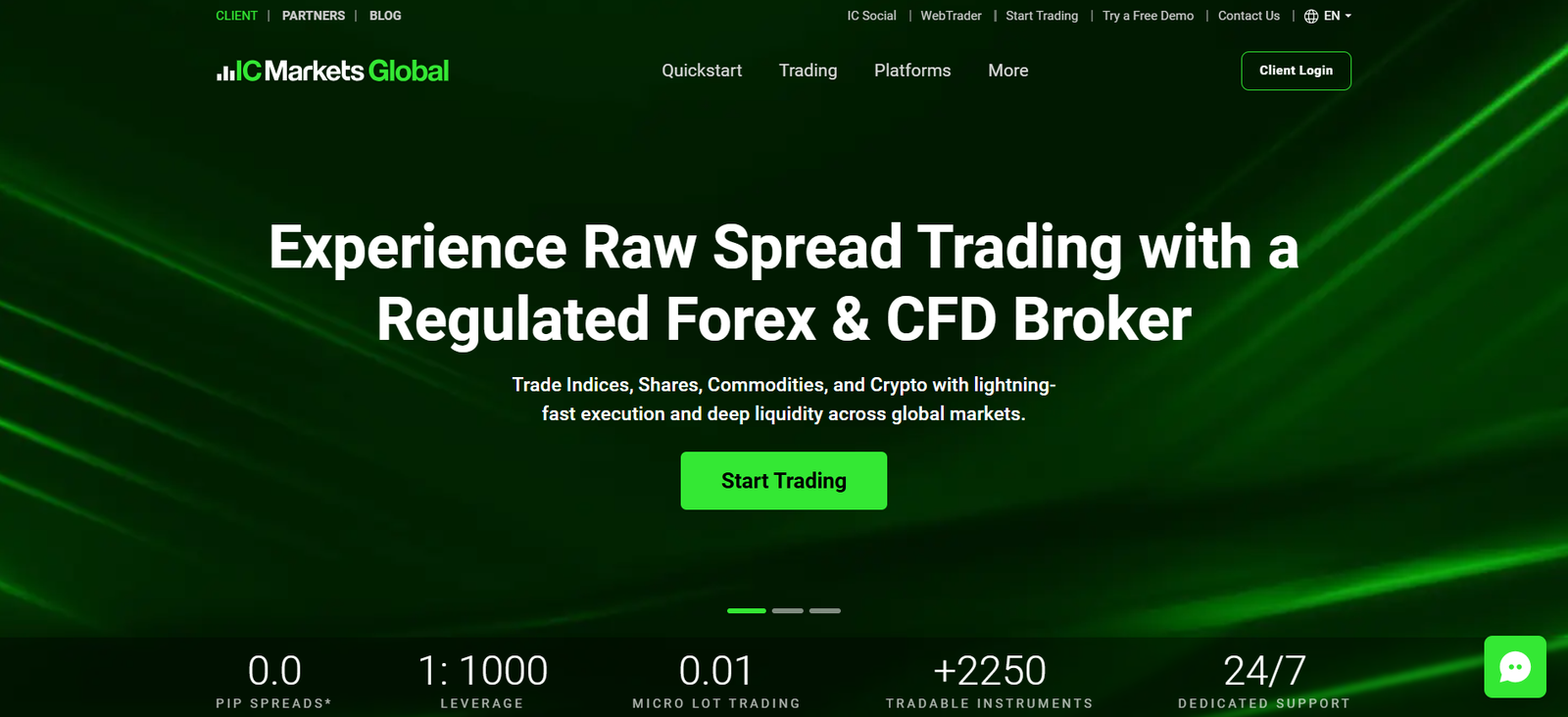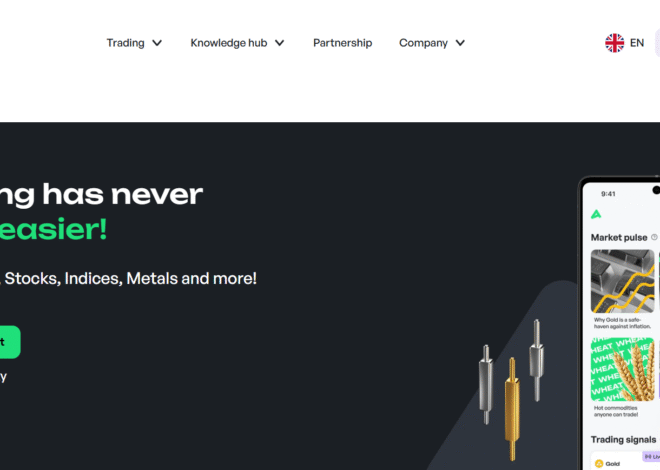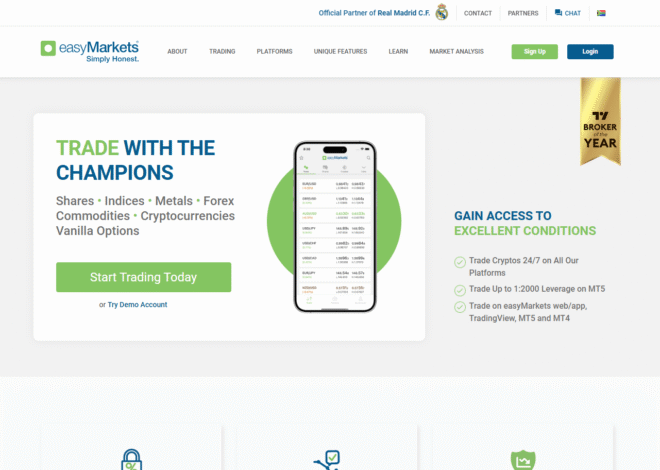
IC Markets EXPOSED: Read This Critical Warning
The world of online trading promises financial freedom, but it’s also a minefield of risks, often compounded by unscrupulous brokers. Our investigative team has turned its spotlight on IC Markets, a broker frequently discussed in online forums and review sites. The findings are alarming, revealing a pattern of user complaints, regulatory ambiguities, and practices that raise serious questions about its legitimacy and commitment to client protection. This article serves as an urgent warning, urging all potential investors to exercise extreme caution and conduct thorough due diligence before entrusting their capital to IC Markets. Is IC Markets a scam? Our investigation uncovers the red flags you simply cannot afford to ignore.
Regulatory Warnings and Compliance Issues
One of the foundational pillars of trust in the financial industry is robust regulation. Reputable brokers operate under strict oversight from tier-one financial authorities, ensuring client fund segregation, fair trading practices, and transparent operations. However, when scrutinizing IC Markets, a more complex and concerning picture emerges. While the broker often touts its various licenses, a closer look reveals a significant divergence in regulatory protection depending on the entity a client is onboarded with. This can be a major red flag, potentially leaving investors vulnerable.
Unregulated Entities and Offshore Operations
Many clients interacting with IC Markets may unknowingly be directed to entities regulated by less stringent, often offshore, authorities. For instance, while an entity might be regulated by ASIC (Australian Securities and Investments Commission) for Australian residents, clients from other regions could be funneled to an entity under the Financial Services Authority (FSA) of Seychelles or the Cyprus Securities and Exchange Commission (CySEC). While these are technically regulatory bodies, their oversight, enforcement capabilities, and investor protection schemes often fall far short of what is offered by top-tier regulators like the FCA (UK), ASIC (Australia), or NFA (US).
The problem with offshore regulation is manifold:
- Limited Investor Protection: Offshore regulators typically offer weaker compensation schemes, meaning if the broker goes bankrupt or disappears, your funds are at significantly higher risk.
- Lack of Transparency: It’s harder to obtain detailed information about the broker’s operations or to file successful complaints against them.
- Enforcement Challenges: Pursuing legal action or even getting a resolution from an offshore regulator can be incredibly difficult, often impossible, for international clients.
This dual-tier regulatory structure allows IC Markets to operate with less scrutiny for a large portion of its global client base, raising questions about its commitment to universal client safety. For many, this ambiguity is a significant IC Markets warning sign.
ASIC’s Stance on Retail Trading Risks and Leverage Restrictions
It’s important to note that even for entities regulated by ASIC, the landscape for retail traders has changed dramatically. ASIC, like many other top-tier regulators, has implemented stringent product intervention measures, including significant restrictions on leverage offered to retail clients. These measures were put in place to protect consumers from the high risks associated with Contracts for Difference (CFDs).
However, some brokers, including potentially IC Markets, might still offer higher leverage through their offshore entities to clients who would otherwise be subject to stricter rules. This circumvention of protective regulations, while not illegal if disclosed, is a clear indicator that the broker prioritizes attracting clients with high-risk offerings over ensuring their safety. Investors seeking a truly secure trading environment should prioritize brokers who adhere to the highest standards of regulation across all their operational entities. The difference in protection between an ASIC-regulated IC Markets entity and an FSA Seychelles-regulated one is stark and critical.
Analysis of User Complaints: A Pattern of Distress
A deep dive into various independent review platforms and financial forums reveals a disturbing pattern of complaints against IC Markets. While some positive reviews exist, the sheer volume and severity of negative feedback cannot be ignored. These aren’t isolated incidents but rather recurring issues that paint a concerning picture for anyone considering IC Markets. This collective outcry from frustrated traders is a powerful indicator of potential problems.
Common Grievances: Price Manipulation and Account Freezes
Among the most frequently reported issues are allegations of price manipulation and sudden account freezes. Traders claim to have experienced:
- Unusual Slippage: Orders being executed at prices significantly different from what was quoted, often to the client’s detriment, especially during volatile market conditions. While slippage can occur naturally, consistent and adverse slippage raises red flags.
- Stop-Loss Hunting: Suspicious price spikes or dips that seem to specifically trigger stop-loss orders, only for prices to revert shortly after. This suggests potential manipulation designed to liquidate client positions.
- Requotes: Frequent requotes, especially when trying to execute profitable trades, leading to missed opportunities or unfavorable entries.
- Account Freezes/Suspensions: Clients reporting their accounts being frozen or suspended without clear explanation, often at critical trading moments or when attempting withdrawals. This can prevent access to funds and ongoing trades.
- Liquidity Issues: Some users have reported instances where IC Markets platforms appear to suffer from liquidity issues, leading to wider spreads or delayed execution, particularly during news events. These issues can severely impact trading performance and trust.
These complaints, when viewed collectively, suggest systemic issues rather than mere technical glitches. For an investigative journalist, such consistent reports of unfair trading conditions are a strong IC Markets warning.
The Avalanche of Negative IC Markets Reviews
Websites like Trustpilot, ForexPeaceArmy (FPA), and various Reddit forums are replete with stories of traders feeling cheated or misled by IC Markets. While some brokers inevitably attract negative reviews, the specific nature of complaints against IC Markets — focusing on withdrawal difficulties, dubious trading conditions, and poor customer support — is particularly concerning. Many users express feelings of helplessness and frustration, stating that their attempts to resolve issues through IC Markets‘ customer service were met with unhelpful responses or outright stonewalling.
The cumulative effect of these negative IC Markets reviews creates a strong argument for extreme caution. Before depositing any funds, prospective clients should spend considerable time sifting through these forums, looking for recurring themes and understanding the depth of user dissatisfaction. This is crucial for making an informed decision about the safety of your investment.
Deceptive Marketing Tactics and Misleading Promises
In the highly competitive world of online brokerage, marketing often blurs the lines between legitimate promotion and outright deception. IC Markets, like many others under scrutiny, has been accused of employing tactics that could mislead potential investors, particularly those new to trading. These tactics often exploit the desire for quick wealth, downplaying the inherent risks of CFD trading.
False Promises of High Returns and Low Risk
Marketing materials and affiliate promotions often highlight the potential for high returns while conveniently glossing over the significant risks involved. This creates an unrealistic expectation for traders, especially beginners, who might believe that consistent profitability is easily achievable. IC Markets might leverage testimonials or attractive figures without adequately emphasizing that past performance is not indicative of future results, or that the vast majority of retail CFD traders lose money. This practice is particularly dangerous as it encourages reckless trading behavior.
Furthermore, some promotions may imply a level of security or ease of trading that simply isn’t true, especially when operating through less regulated entities. The “dream” of financial independence is sold without a clear, unequivocal disclosure of the harsh realities of the market. This can lead to investors taking on more risk than they can afford, under the false impression that the broker’s platform offers a unique advantage.
Aggressive Sales Tactics and Unsolicited Contact
Another common complaint against brokers like IC Markets involves aggressive sales tactics. Users report unsolicited phone calls, emails, and messages from sales representatives pushing them to deposit more funds, often after an initial small deposit. These representatives might pressure clients to trade larger volumes or use higher leverage, sometimes with promises of “exclusive” strategies or “expert” guidance that rarely materialize.
Such tactics are designed to increase the broker’s commission revenue, often at the expense of the client’s financial well-being. A truly client-focused broker would prioritize education and risk management, not aggressive upselling. If you’ve experienced persistent, high-pressure sales from IC Markets, consider it a serious warning sign. This behavior is inconsistent with the practices of reputable financial institutions that prioritize client welfare.
Withdrawal Problems: A Major Red Flag for IC Markets Users
Perhaps the most alarming and frequently cited problem across various platforms is the difficulty users face when trying to withdraw their funds from IC Markets. For any financial institution, the ability to access one’s capital promptly and without undue hindrance is fundamental. When this process becomes opaque, delayed, or outright obstructed, it immediately signals a severe lack of trustworthiness and professionalism. This issue alone warrants a critical IC Markets warning.
Delayed Payouts and Unexplained Fees
Numerous reports detail significant delays in processing withdrawal requests, often stretching into weeks or even months, far beyond the standard processing times advertised by the broker. Clients describe a frustrating cycle of submitting requests, waiting, and then being told there are “technical issues” or “verification problems.”
- Unjustified Delays: Withdrawals taking an unusually long time to process, with no clear explanation or resolution.
- Hidden Fees: Some users report unexpected fees deducted from their withdrawal amounts, sometimes without prior notification or clear justification within the terms and conditions.
- Complex Verification: Requests for excessive or repeated documentation for Know Your Customer (KYC) procedures, specifically timed to delay withdrawals. This can be a tactic to frustrate clients into giving up.
These delays and additional hurdles create immense stress for traders who need access to their money. It’s a classic tactic observed in many less reputable operations: making it easy to deposit but incredibly difficult to withdraw.
The Runaround: Customer Support Failures
When clients encounter withdrawal problems, their natural recourse is customer support. However, reports suggest that IC Markets‘ support in these situations is often unhelpful, providing generic responses, passing the buck, or simply ignoring inquiries.
- Lack of Concrete Solutions: Support agents failing to provide clear timelines, reasons for delays, or effective solutions.
- Repetitive Requests: Being asked to resubmit documents or information multiple times, leading to further delays.
- Unresponsive Channels: Emails going unanswered, live chat agents being unhelpful, or phone lines resulting in long waits and no resolution.
This pattern of poor customer support during critical junctures like withdrawals is a strong indicator of systemic issues within IC Markets. It suggests either an overwhelmed support team, a deliberate strategy to deter withdrawals, or a combination of both. In either case, it severely undermines confidence in the broker’s integrity and reliability. If you are experiencing these issues, you are not alone, and it reinforces the argument that IC Markets might be a scam or at least operating with highly questionable practices.
The Illusion of Regulation: What Licenses Really Mean
As discussed, IC Markets holds various licenses. However, the mere possession of a license does not automatically equate to robust investor protection. Understanding the nuances of regulatory bodies is critical to discerning a truly safe broker from one that merely offers the “illusion” of safety.
The Pitfalls of Offshore Licensing
Many brokers, including IC Markets for certain client segments, operate under licenses from offshore jurisdictions such as the Seychelles (FSA), Mauritius, or Vanuatu. While these entities are indeed regulated, the level of scrutiny, capital requirements, and investor compensation schemes are often vastly inferior to those imposed by tier-one regulators.
- Weak Enforcement: Offshore regulators may have limited resources or political will to enforce regulations rigorously, especially against large, international brokers.
- Minimal Capital Requirements: Lower capital requirements mean these entities might not have sufficient funds to cover client liabilities in case of financial distress.
- Limited Recourse: If a dispute arises, pursuing a resolution through an offshore regulatory body can be a complex, costly, and often futile endeavor for an individual investor.
This means that while IC Markets can technically claim to be regulated, the actual protection offered to many of its clients might be minimal, if any. This is a crucial distinction that many novice traders overlook, making them susceptible to potential misconduct.
The Importance of Tier-1 Regulation
In stark contrast, tier-one regulators like the Financial Conduct Authority (FCA) in the UK, the Australian Securities and Investments Commission (ASIC), the National Futures Association (NFA) in the US, and the Cyprus Securities and Exchange Commission (CySEC) for EU operations (under MiFID II directives) impose stringent requirements:
- Segregation of Client Funds: Mandatory separation of client funds from the broker’s operational capital, ensuring funds cannot be used for broker’s debts.
- Investor Compensation Schemes: Protection funds (e.g., FSCS in the UK, ICF in Cyprus) that compensate clients up to a certain amount if the broker goes bankrupt.
- Regular Audits and Reporting: Strict financial reporting and auditing requirements to ensure transparency and solvency.
- Leverage Restrictions: Limits on leverage to protect retail traders from excessive risk.
- Robust Dispute Resolution: Clear and accessible channels for clients to file complaints and seek resolution.
When a broker, like IC Markets, directs clients to its offshore entities, it effectively bypasses these critical protections, placing the client at significantly higher risk. This practice, while common, is a serious IC Markets red flag that potential investors must consider.
Unpacking IC Markets’ Trading Conditions: Hidden Costs and Slippage
Beyond regulatory concerns and withdrawal issues, the actual trading environment offered by IC Markets also warrants scrutiny. Several aspects of its trading conditions, as reported by users, suggest that traders might not be getting the fair and transparent execution they expect. This can significantly impact profitability and overall trading experience.
Spreads, Commissions, and Execution Speed
While IC Markets often advertises competitive spreads and low commissions, user reports sometimes contradict these claims:
- Widening Spreads: Complaints about spreads widening significantly during volatile periods, or even during normal trading hours, making it harder to enter or exit trades profitably.
- Execution Delays: Reports of delays in order execution, particularly for market orders, which can lead to unfavorable entry or exit prices. This is distinct from slippage but contributes to poor trade outcomes.
- Requotes: As mentioned earlier, frequent requotes can be a major frustration, preventing traders from executing at their desired price.
- Hidden Fees: While commissions are usually stated, some users have encountered less obvious fees related to inactivity, withdrawals, or certain payment methods that erode their capital.
These issues, if consistent, can turn seemingly competitive trading conditions into a disadvantage for the trader, suggesting that the “low-cost” promise of IC Markets might come with hidden drawbacks.
The Impact of High Leverage
While high leverage can amplify profits, it equally amplifies losses, a fact often downplayed in broker marketing. Some IC Markets entities, particularly those offshore, may offer extremely high leverage ratios (e.g., 1:500 or even higher). While this might attract aggressive traders, it dramatically increases the risk of margin calls and rapid account depletion.
For inexperienced traders, high leverage acts as a double-edged sword that is far more likely to cut deeply. Reputable brokers operating under strict regulations limit leverage precisely to protect retail clients from such catastrophic losses. The availability of excessively high leverage, particularly from less regulated IC Markets entities, is another strong indicator that client protection might not be the broker’s top priority. This is a critical point for anyone evaluating if IC Markets is a scam or simply a high-risk platform.
What to Do If You’ve Been Affected by IC Markets
If you believe you have been unfairly treated by IC Markets, or if you are experiencing difficulties with withdrawals or other issues, it is crucial to take immediate action. Don’t let your concerns go unheard.
1. Document Everything
The first and most critical step is to meticulously document all your interactions and issues with IC Markets.
- Keep Records: Save all emails, chat transcripts, and screenshots of your trading platform, account statements, and withdrawal requests.
- Log Communication: Note down dates, times, and names of customer support representatives you spoke with, along with a summary of the conversation.
- Transaction History: Download and save your full trading history and deposit/withdrawal records.
This documentation will be vital evidence if you need to escalate your complaint to regulatory bodies or seek legal advice.
2. File a Formal Complaint with IC Markets
Before escalating, formally complain directly to IC Markets in writing. Clearly state your issue, reference your account number, and provide all relevant documentation. Request a formal response within a reasonable timeframe (e.g., 7-14 days). This establishes a paper trail and shows you attempted to resolve the issue internally.
3. Report to Relevant Regulatory Authorities
Depending on which IC Markets entity you were onboarded with, you should report your issues to the relevant financial regulator.
- ASIC (Australia): If you were registered with their Australian entity.
- CySEC (Cyprus): If registered with their Cyprus entity.
- FSA Seychelles: If registered with their Seychelles entity. Be aware that recourse here might be limited.
- Your Local Financial Regulator: Even if IC Markets is not directly regulated in your country, your local regulator might be able to offer guidance or warnings to other consumers.
Provide them with all your documented evidence. While offshore regulators might offer limited assistance, reporting still contributes to a broader understanding of the broker’s conduct.
4. Seek Legal Advice or Consumer Advocacy
Consider consulting with a lawyer specializing in financial fraud or a consumer protection agency. They can advise you on your legal options and potentially assist in recovering funds. Websites like ForexPeaceArmy also have dedicated sections for reporting broker scams and can offer community support and advice. [Internal Link to How to Spot a Trading Scam]
Protecting Yourself from Broker Scams
The experience with brokers like IC Markets highlights the importance of vigilance in the online trading world. Here are essential steps to protect your investments:
1. Research Before You Invest
Never rush into depositing funds with any broker.
- Check Regulatory Status: Verify the broker’s regulatory licenses directly on the regulator’s website. Do not rely solely on what the broker claims on their own site. Pay close attention to which entity you will be trading with and where it is regulated.
- Read Independent Reviews: Look beyond the broker’s website. Check multiple independent review sites, forums (like Reddit, FPA), and financial news outlets for unbiased feedback. Pay attention to recurring complaints, especially regarding withdrawals and trading conditions.
- Understand the Terms: Fully read and comprehend the broker’s terms and conditions, focusing on fees, withdrawal policies, and dispute resolution procedures.
2. Verify Regulatory Status and Entity
Always confirm which specific legal entity of the broker you are registering with and which regulatory body oversees that entity. A broker might have an ASIC license for its Australian clients but funnel international clients to an unregulated or weakly regulated offshore entity. This distinction is paramount for your protection. Many brokers use this tactic, and it’s a critical IC Markets warning for global users.
3. Start Small and Test Withdrawals
If you decide to proceed with a broker despite some concerns, start with a minimal deposit. After making some trades, attempt to withdraw a small amount of profit. This “test withdrawal” can expose potential issues before you commit significant capital. If you encounter difficulties, it’s a major red flag to move your funds elsewhere.
4. Be Wary of Unrealistic Promises and Pressure Tactics
No legitimate broker will guarantee high returns or pressure you into depositing large sums. Be highly skeptical of any claims that sound too good to be true, aggressive sales calls, or requests to grant remote access to your computer. These are classic signs of potential fraud or predatory practices. [Internal Link to How to Choose a Reputable Broker]
Conclusion: A Final IC Markets Warning
Our investigation into IC Markets reveals a significant number of serious concerns that collectively paint a troubling picture. From ambiguous regulatory practices that funnel international clients to less protected offshore entities, to a consistent pattern of user complaints regarding price manipulation, account freezes, and, most critically, severe difficulties with withdrawals, the red flags are undeniable. While IC Markets may present itself as a leading global broker, the experiences of many traders suggest a reality far removed from its polished facade.
We strongly urge all potential investors to exercise extreme caution. The risks associated with IC Markets, particularly concerning fund safety and transparent trading conditions, appear to be substantial. Prioritize your financial security by choosing brokers with impeccable regulatory standing, a transparent operational history, and overwhelmingly positive, consistent user feedback. Do not let the promise of quick profits blind you to the very real dangers outlined in this IC Markets warning. If you have been affected, report your issues to the relevant authorities immediately and seek professional advice. Your financial future depends on making informed, cautious decisions.
External Links Reference Table
| Anchor Text | URL |
|---|---|
| ASIC’s Investor Warnings | https://asic.gov.au/for-consumers/warnings-and-alerts/ |
| ForexPeaceArmy Review of IC Markets | https://www.forexpeacearmy.com/forex-reviews/13370/icmarkets.com |
| FCA’s warning on investment scams | https://www.fca.org.uk/scamsmart/investment-scams |


